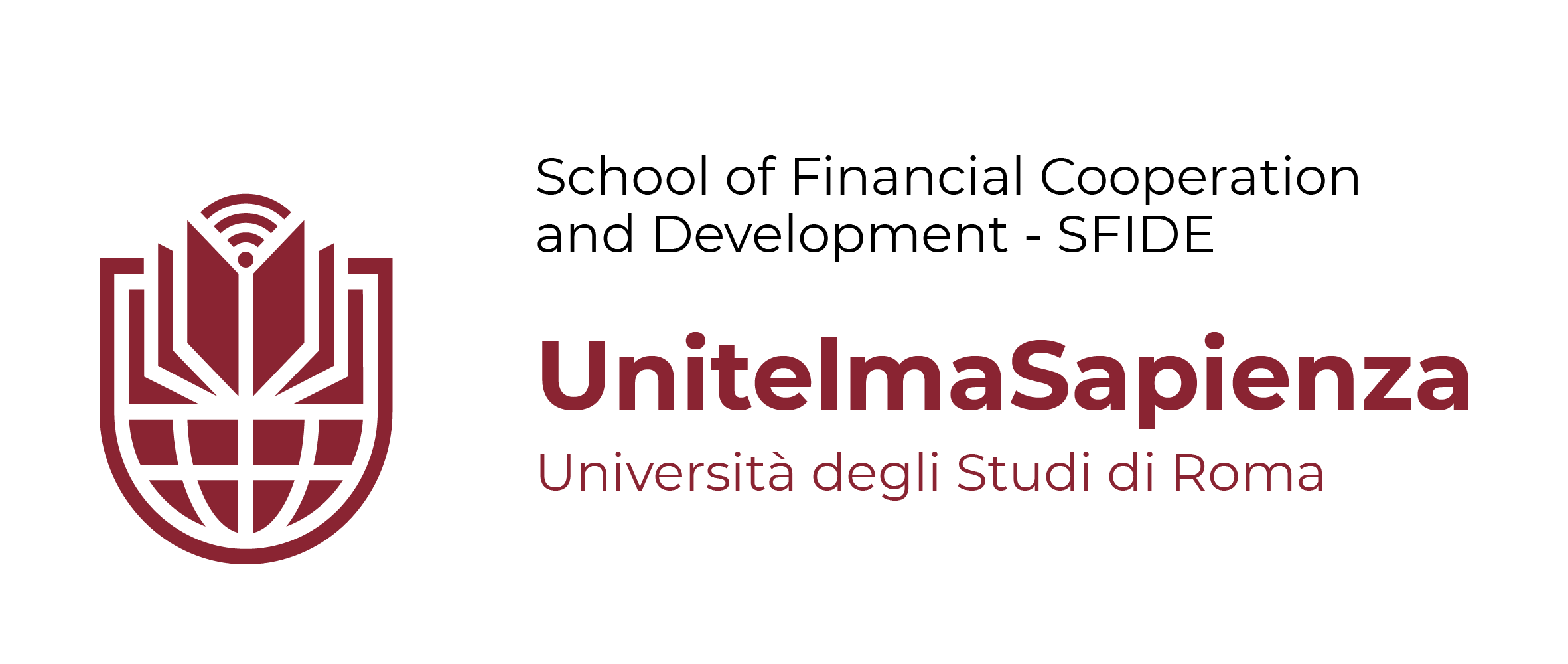COURSE “Approaches to free Impact Investing from the Underpart” ERASMUS+ KA2 “From ESG Integration to Impact Investing”
 |
 |
 |
 |
- About This Course
-
“Approaches to free Impact Investing from the Underpart” is an online course on impact investing and sustainable finance.
The course is part of the Erasmus + Project "From ESG Integration to Impact Investing" funded by the European Union, sri-europe.eu.
The Project involves the University of Liechtenstein - as organizer - and three other outstanding European Universities: UNED from Madrid, Sapienza University of Rome and Unitelma Sapienza of Rome.
The aim of the collaboration is to develop three open online courses for different target groups within three years.
This third online course – implemented by Sapienza University of Rome and UnitelmaSapienza of Rome - target potential ESG investors, both retail and private, as well as asset managers, and other financial intermediaries and institutional investors.
This course aims at providing potential ESG investors with a tool to improve their expertise on impact and sustainable investments. Specifically, the course analyses the sustainable investment market, addressing fundamental issues useful to orientate ourselves investments.
After completing the course, participants will have a clear understanding of the main variables to monitor in adopting an investment decision ESG-oriented
- Content
-
This course covers fundamental issues of the ESG investment market, starting from the nature of ESG investments, and the difference with impact investments. The course also provides tools and guidelines to understand how sustainable funds work, what they offer, how they perform, as well as asset managers strategies and ESG portfolio performance. A focus on sustainable banks will introduce the argument of how traditional financial intermediaries are approaching the integration of ESG factors; with that respect the course will offer a guideline to better interpretate the ESG orientation of a traditional bank. Participants will also learn how to interpretate ESG ratings, scorings, indices, and which information ESG opinions are likely to offer. The course also offers the basics to orientate ourselves in the world of Impact Measurement and Non-Financial Statement.
Lecture 1 - A Preliminary Guide to ESG Investments
Lecture 2 - A Preliminary Guide to Impact Investments
Lecture 3 - How to recognize Impact and Sustainable Banks
Lecture 4 - Further into Bank’s ESG Profile
Lecture 5 - How to recognize Impact and Sustainable Funds
Lecture 6 - Deeper into Asset Manager Strategies
Lecture 7 - Deeper into ESG Portfolios
Lecture 8 - How to navigate ESG indexes
Lecture 9 - How to read ESG Rating and Scoring
Lecture 10 - How to read ESG Opinions
Lecture 11 - How to read Impact Measurement
Lecture 12 - How to read Non-Financial Statements
- Requirements
-
There is no entry requirement, as the course starts assuming no prior knowledge. All that is recommended is an interest in the subject matter and a B2 level of English, as the course is in English.
- Targeted learners
-
This online course is intended for anyone, especially students from diverse backgrounds, professionals and for any potential investor and practitioner interested in impact and ESG investment. This is the third open course of three courses.
The first course, implemented by UNED, is designed for use in public education and focuses on the role of sustainable investing in addressing Sustainable Development Goals (SDG); it is designed to explain how to use the beneficial of capital markets in order to finance socially responsible projects. The second course, implemented by University of Lichtenstein, is intended for students who are interested in increase sustainable financial education and literacy and it is designed for use in tertiary education, especially for students in finance.
- Duration
-
The course is 16 weeks long, but it can be done at your own pace.
- Activities and assessment
-
The course content is based on videos, readings and activities, including as self-evaluation tests.
You can already enroll in the first course that focuses on the role of sustainable investing in addressing Sustainable Development Goals (SDG):The Role of Socially Responsible Investments in achieving Sustainable Development Goals (3ed. 2022)
- Course Staff
-
Coordinators
Mario La Torre
Mario La Torre is Full Professor in Banking and Finance at Sapienza University of Rome. Among its main research areas are banking, financial intermediaries and financial markets, sustainable finance, impact finance, microcredit, audiovisual and art finance. Author of numerous publications, Mario La Torre is also editor of the international series Palgrave Studies in Impact Finance and author of the blog Good in Finance. He has held various institutional positions, including that of a member of the G8 Task Force on Social Impact Investments, advisor to the Minister for Culture, member of the Board of Directors of Cinecittà Holding. Currently, he is a member of the Board of the Italian National Agency for Microcredit.
Roberto Pasca di Magliano
Roberto Pasca di Magliano has been full professor of Economics from 1980 to 1985 at University of Naples and at Sapienza University of Rome up to 2014 where he has been professor of several ecnomics subjects. The last one has been professor of Growth Economics. Now is professor of Innovation Economics and Management, director of the High School on Financial Cooperation and Development and of the Master “International Cooperation, Finance and Development”, UnitelmaSapienza, University of Rome. He is member of the Scientific Council of the Fondazione Roma Sapienza and coordinator of the International Cooperation section. After the degree in Economcs at University of Naples he specialised in economic studies at the Rossi Doria Center of University of Naples (1969), he attended the Msc course at the London School of Economcs and Political Science (1971-73) and others British and American Universities (1977, 1978). He was invited as visiting professor on International Economics at the University of California, Berkeley (1980). He won the competion for full professor in 1980. During his career he covered institutional engaments. He was apointed responsable for the Development Cooperation at the Italian Ministry of Foreign Affairs (1985-87). He hold the position consultant to Ministry of Agriculture (1991). He was appointed as General Director of business incentives policies at the Italian Ministry of Productive Activities (2002-2005). In Sapienza University he promoted the establishment of the course in Development Sciences and International Cooperation, of which he became president (2006). He is author of many publications concerning economic analysis, development economics, agricultural economics, international finance, innovation and governance.
Teaching Teams
Sabrina Leo
Sabrina Leo (PhD) is Tenure Track Assistant Professor at the Sapienza University of Rome. She teaches Bank Strategies, Performance and Digital Banking, and Economics of Financial Intermediaries. Her primary areas of research are related to banking and finance with a special focus on financial innovation. She is expert in impact and sustainable banking, DLT, digital Payments, IT governance in banks, audio-visual and art financing. She is author of several publications in the field.
She is a Research Fellow of D€A – Digital Euro Association; she served as Scientific Observer of the Italian Advisory Board at the G8 Task Force on Social Impact Investments.
Jenny Daniela Salazar Zapata
Jenny Daniela Salazar Zapata is PhD student in “Banking and Finance” at the Department of Management - Sapienza University of Rome. Her main research areas are sustainable finance and impact finance. She is author of few publications in the field of sustainable finance and public expenditure, multidimensional impact measurement, sustainable finance products and business models. She has attended several international conferences as keynote speaker.
Jenny D. Salazar Zapata represents the Youth Network in the revision of the National Strategy for Sustainable Development in Italy, coordinated and promoted by the Italian Ministry for Ecological Transition. Since 2021, she acts as professional consultant at Notomia.
- How to register
-
Registration for the Online Course is free and you can complete the course within 365 days of
registration.
Once the form has been filled in
(https://docs.google.com/forms/d/e/1FAIpQLSdNur6C6SdCa2_8QM4pJ2vT5DautIZQ...), you will receive the link and credentials for access to the Moodle
Unitelma Platform. - Contacts
-
Prof. Mario La Torre, mario.latorre@uniroma1.it
Prof.ssa Sabrina Leo, sabrina.leo@uniroma1.it
